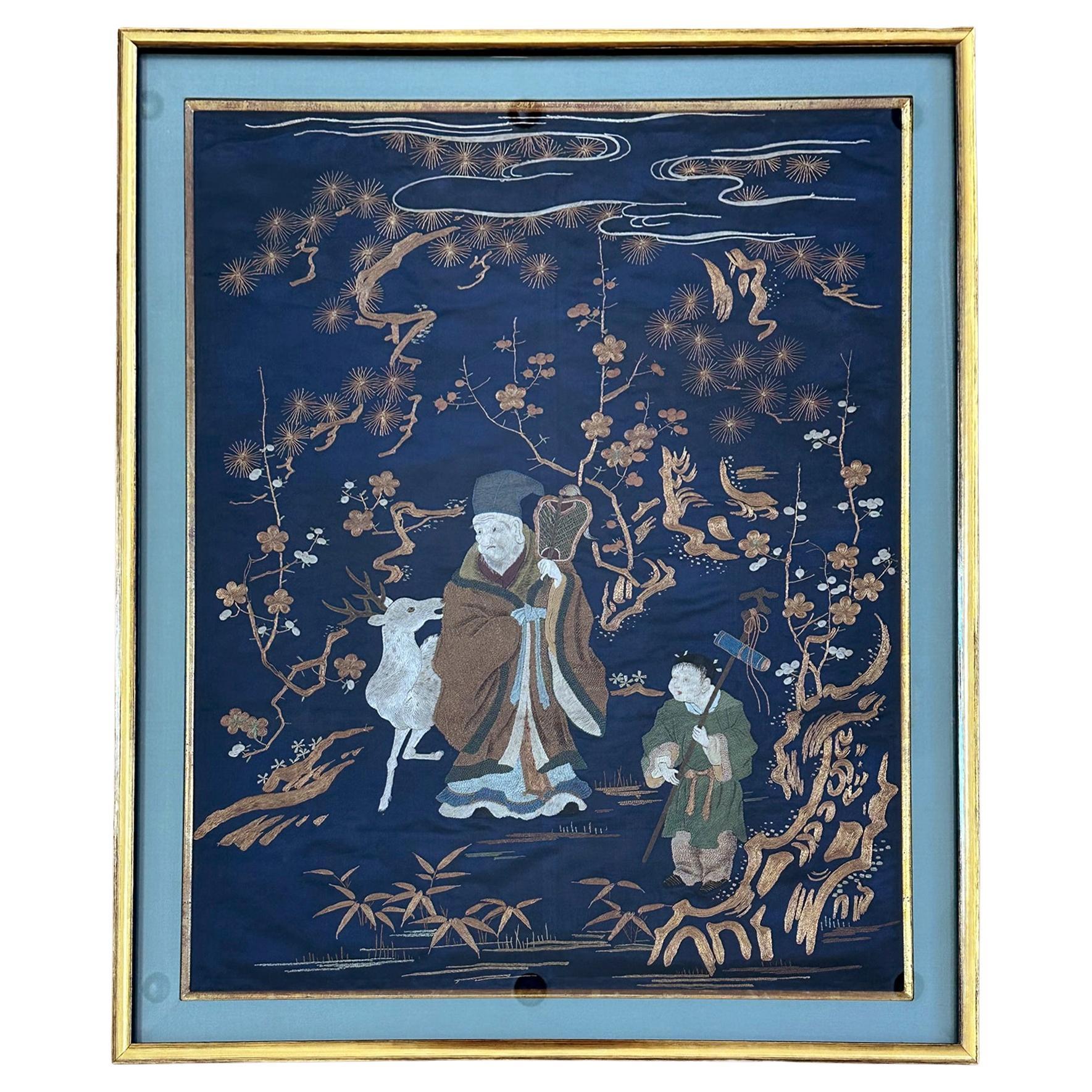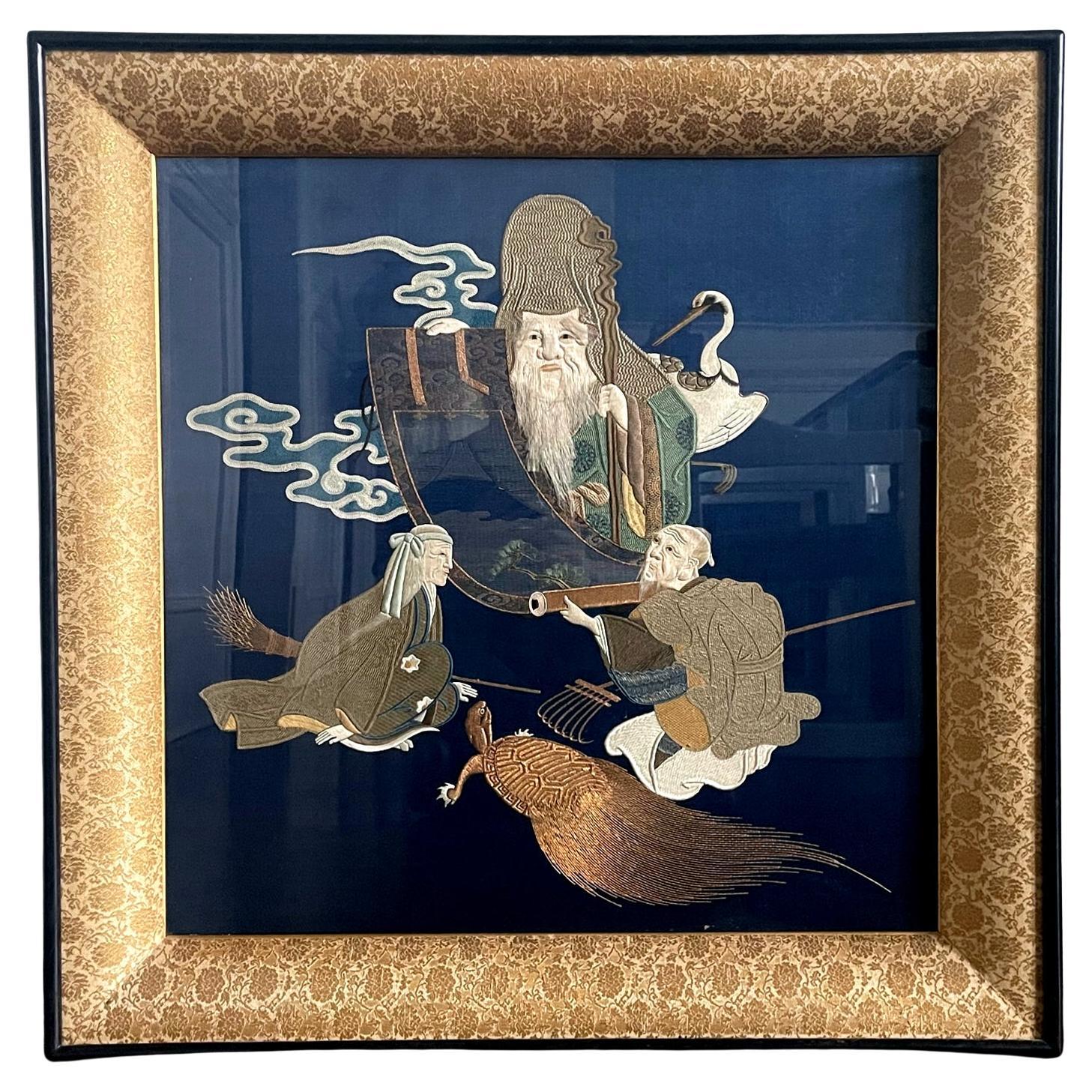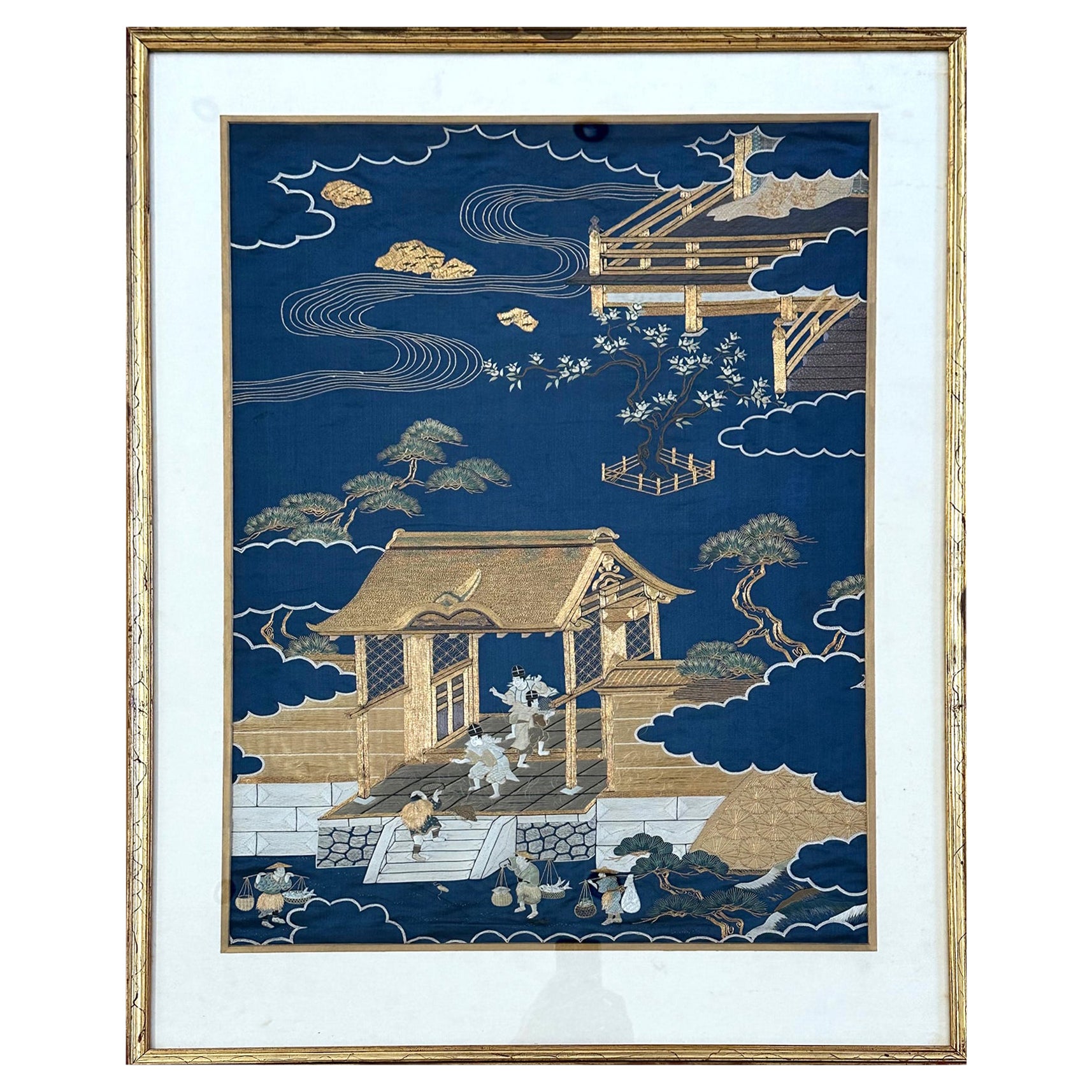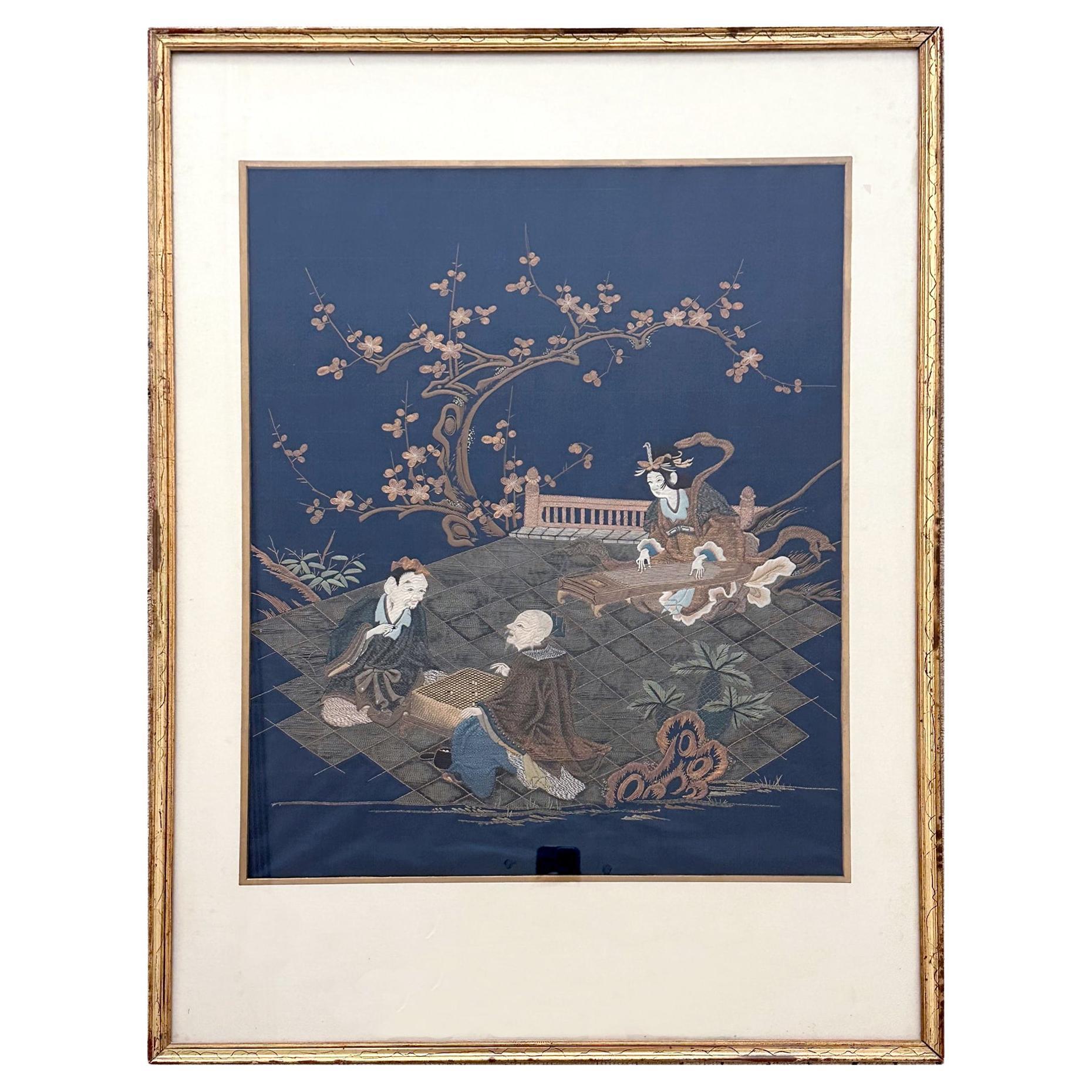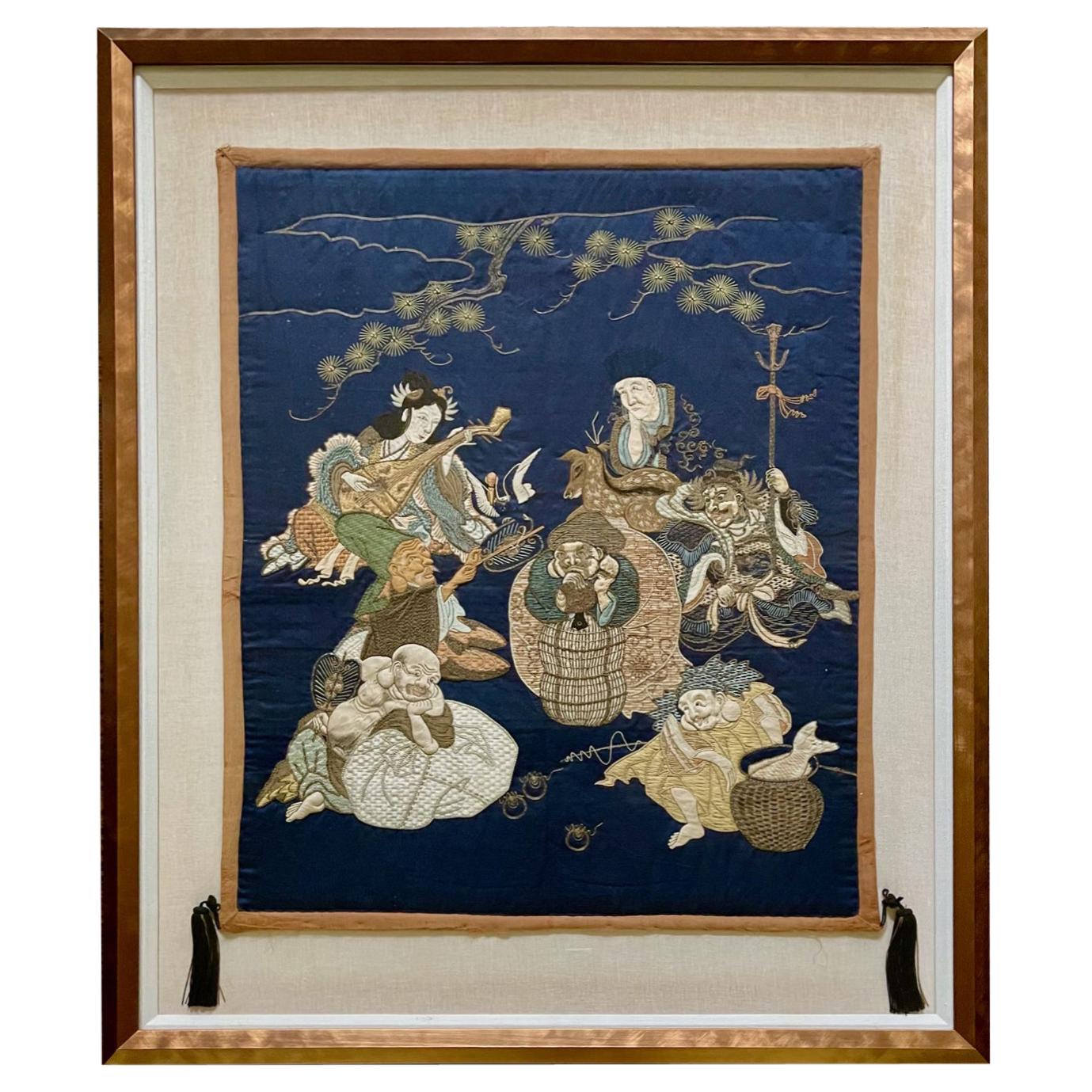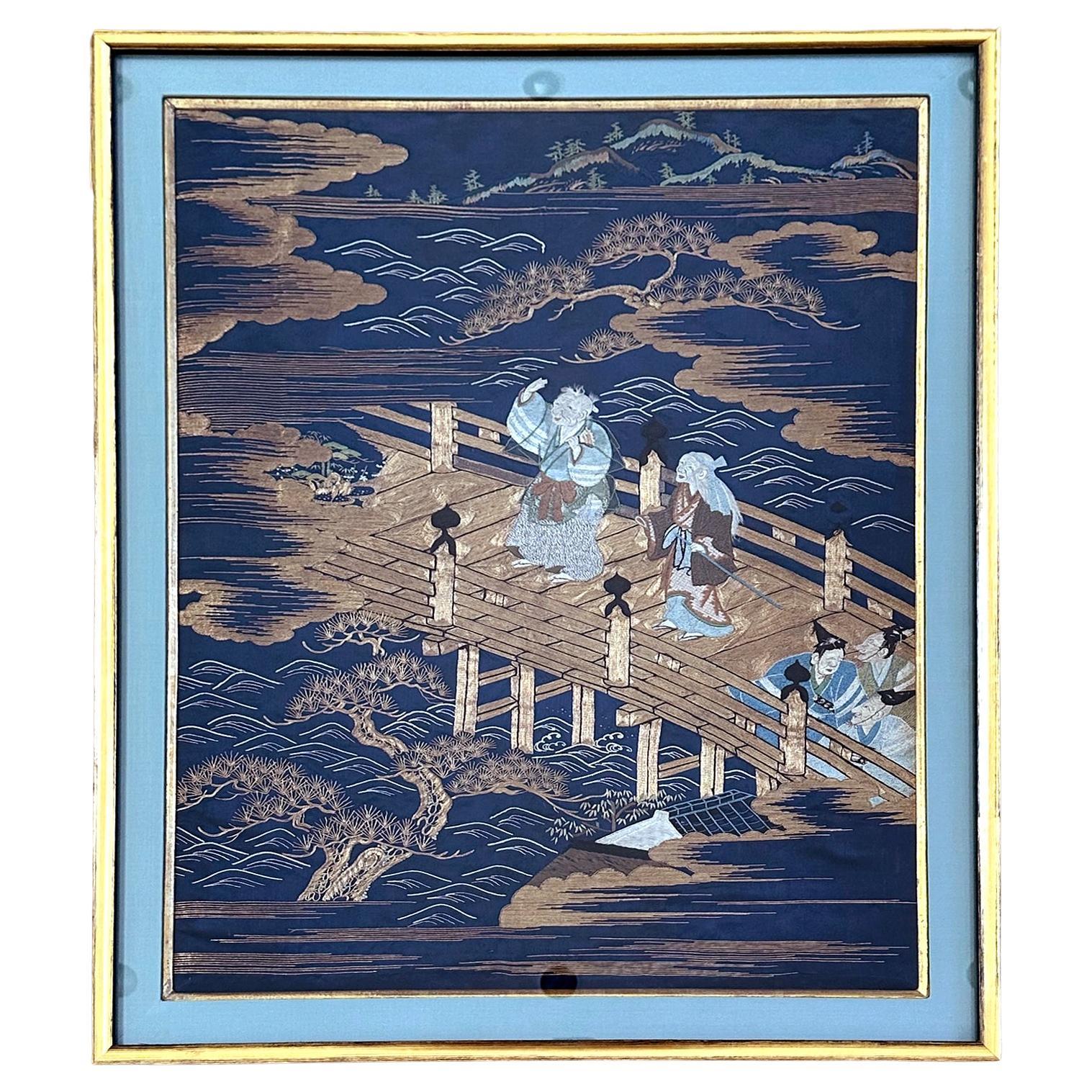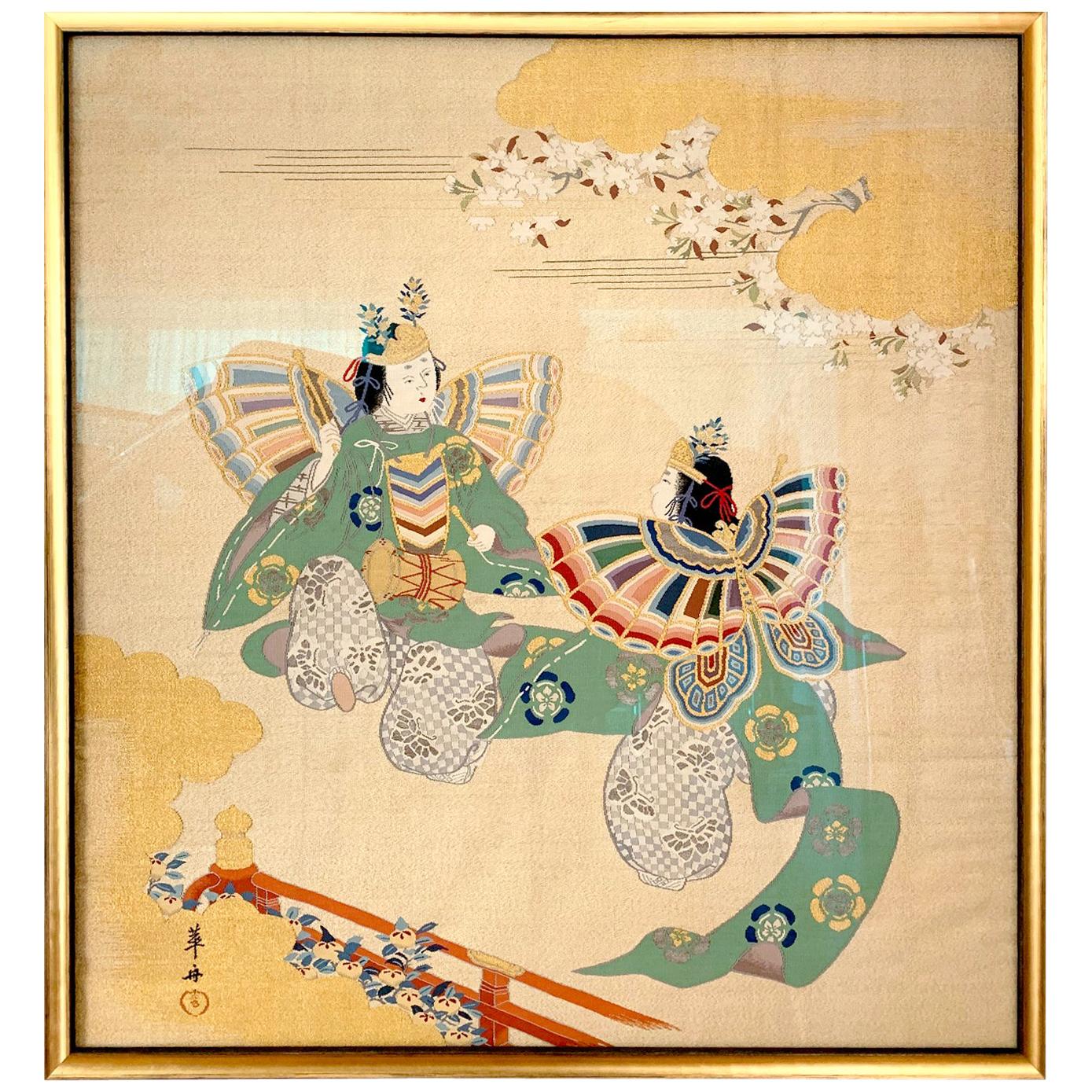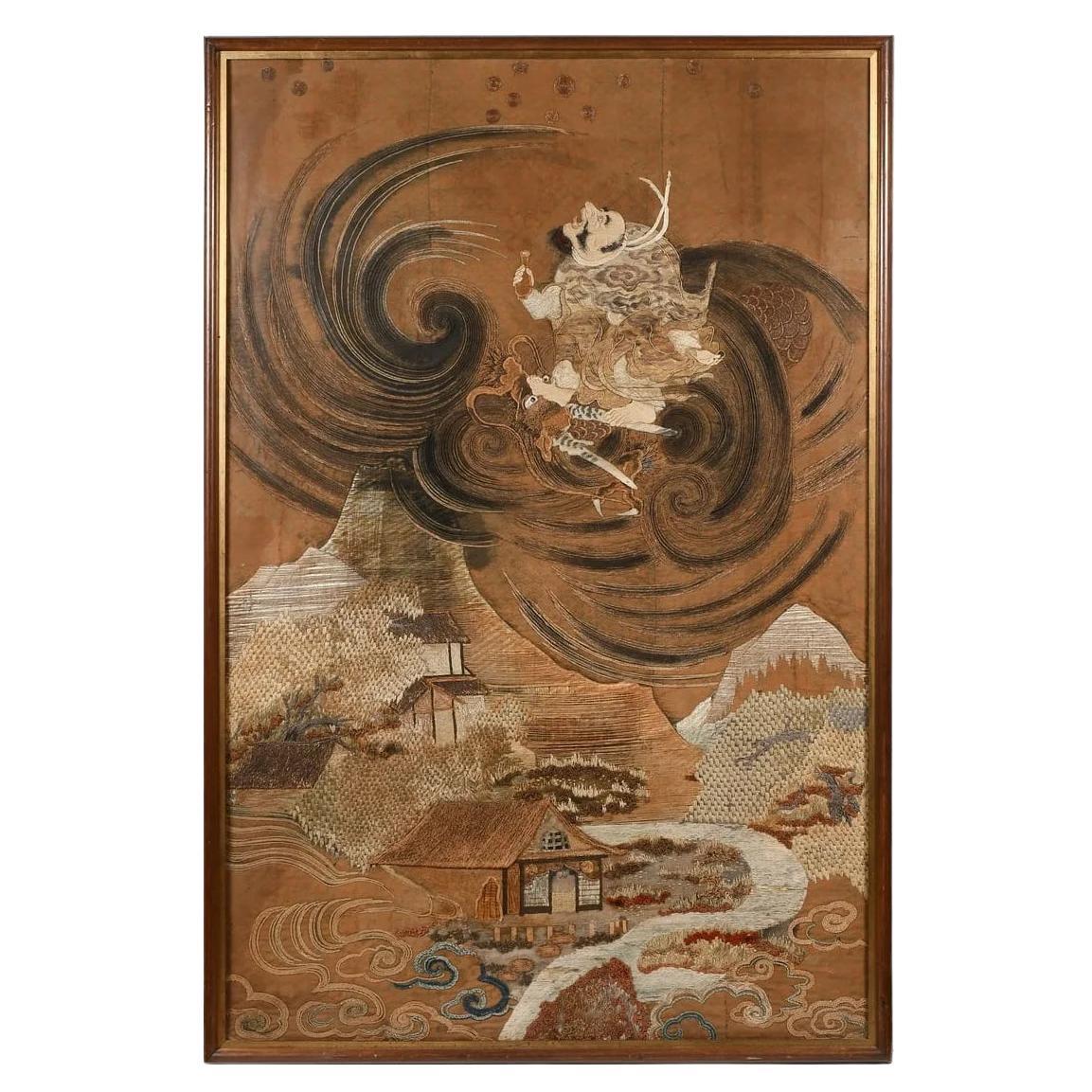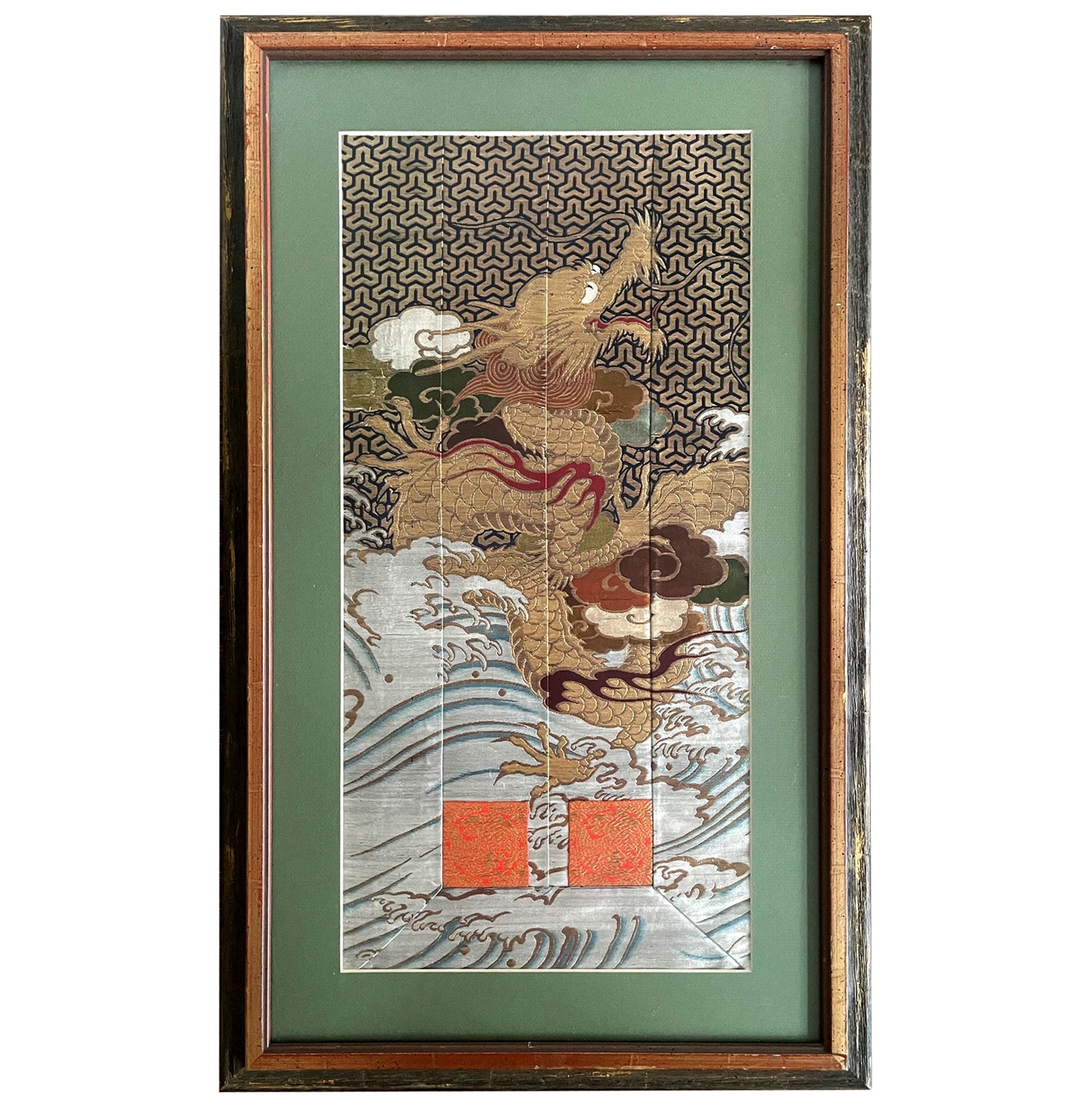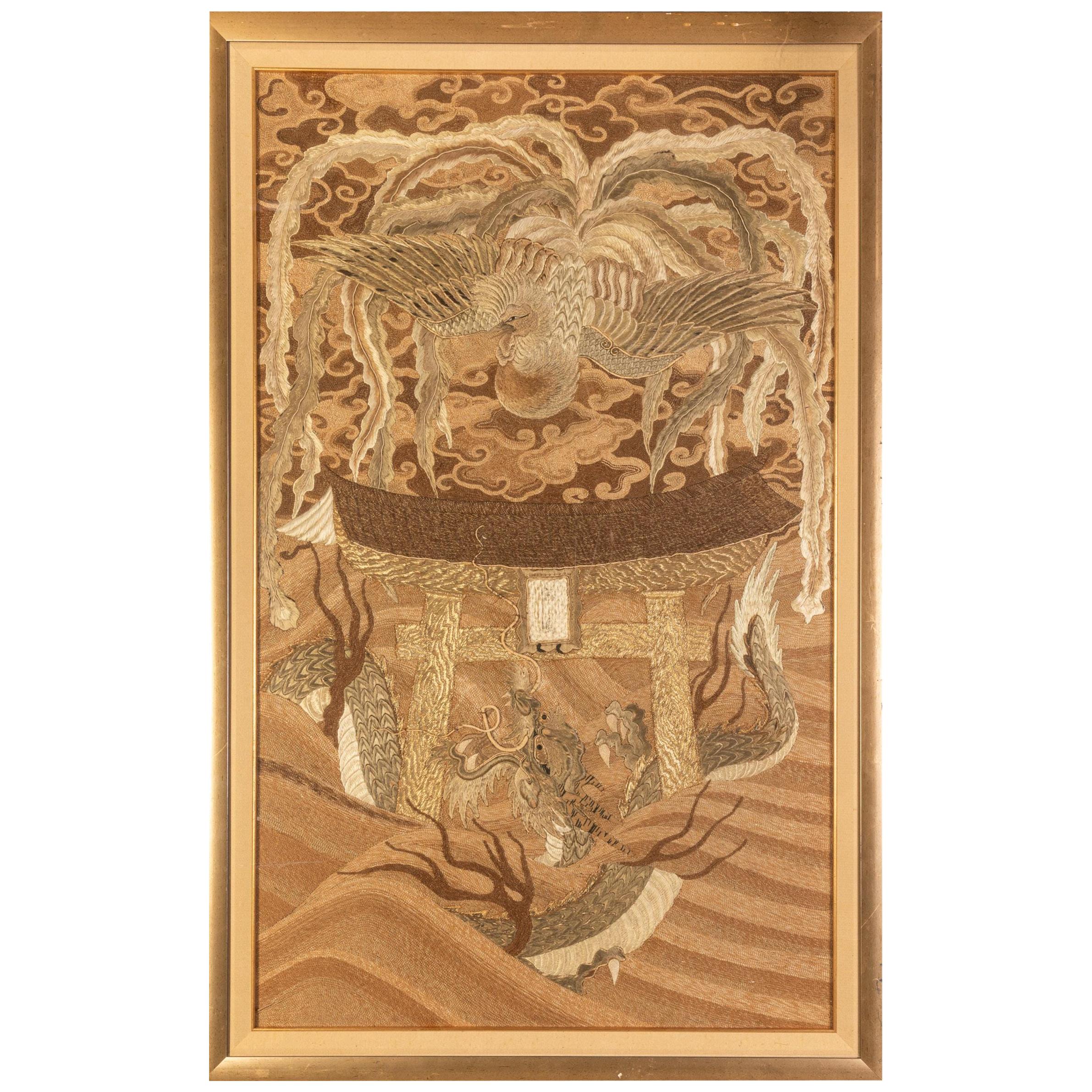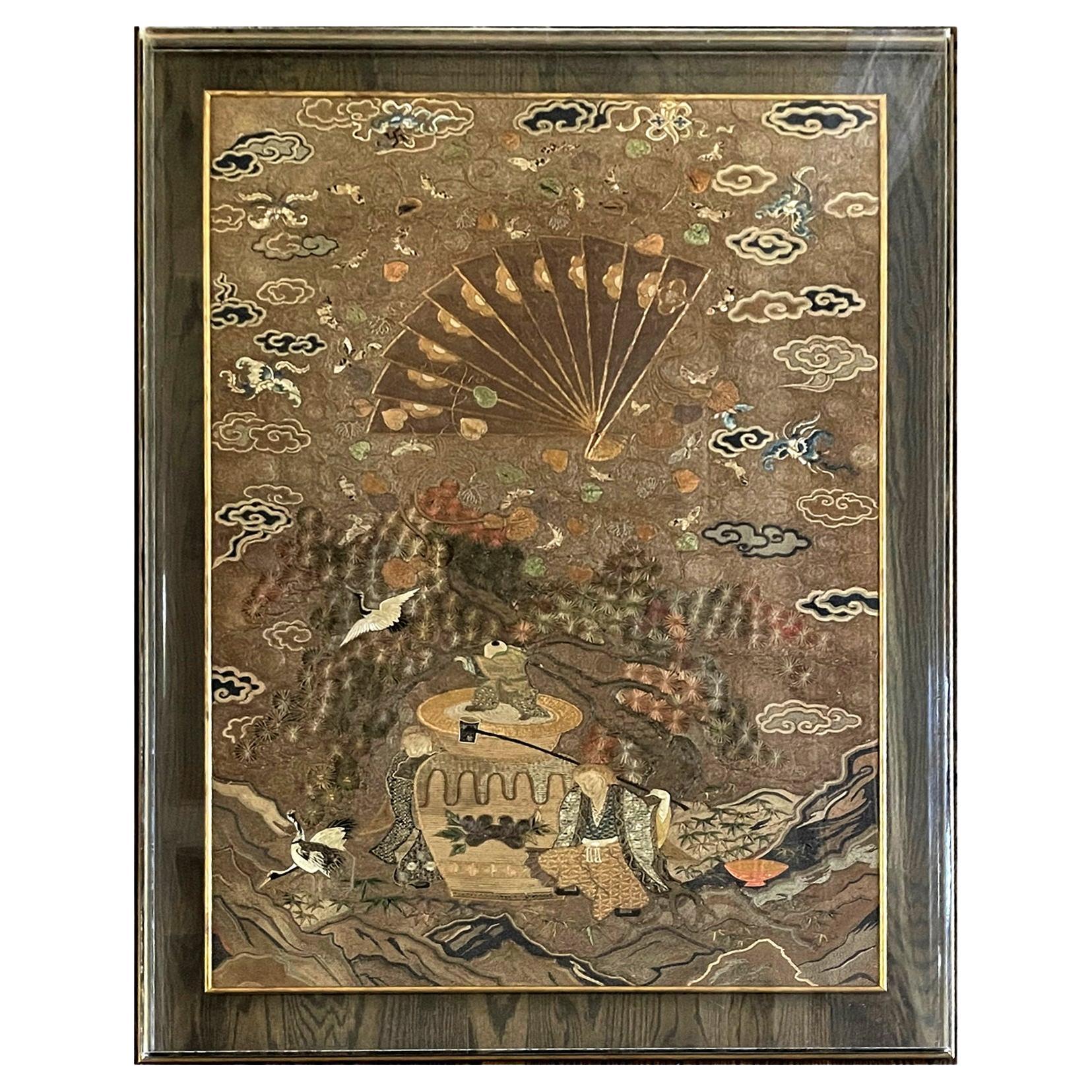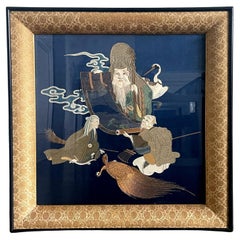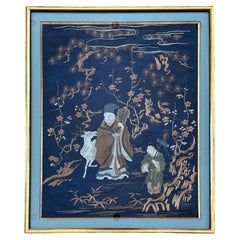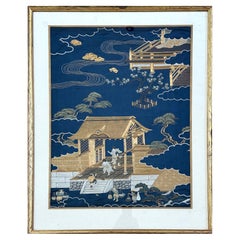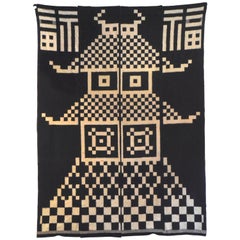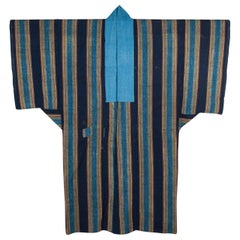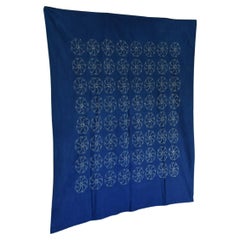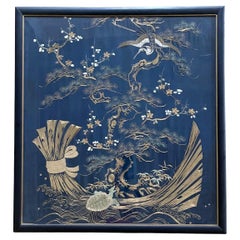
Framed Japanese Embroidery Fukusa Panel Meiji Period
View Similar Items
Want more images or videos?
Request additional images or videos from the seller
1 of 14
Framed Japanese Embroidery Fukusa Panel Meiji Period
About the Item
- Dimensions:Height: 29.75 in (75.57 cm)Width: 27.5 in (69.85 cm)Depth: 0.75 in (1.91 cm)
- Style:Meiji (Of the Period)
- Materials and Techniques:
- Place of Origin:
- Period:
- Date of Manufacture:19th Century
- Condition:Wear consistent with age and use. Minor losses. Areas of loose threads and a small tear on the top right background. Loss to the inner gilt wood trim lower left. All as shown. Some wear on the paper backing as expected. It can benefit from preservation and reframing.
- Seller Location:Atlanta, GA
- Reference Number:1stDibs: LU945028731252
About the Seller
5.0
Platinum Seller
These expertly vetted sellers are 1stDibs' most experienced sellers and are rated highest by our customers.
Established in 2006
1stDibs seller since 2010
478 sales on 1stDibs
More From This SellerView All
- Framed Antique Japanese Embroidery Fukusa PanelLocated in Atlanta, GAA finely embroidered Japanese silk Fukusa panel presented in a beautiful brocade-wrapped fame. Circa late 19th century of Meiji Period, Fukusa is a traditional Japanese textile...Category
Antique Late 19th Century Japanese Meiji Textiles
MaterialsSilk, Wood
- Framed Antique Japanese Embroidery Fukusa PanelLocated in Atlanta, GAA finely embroidered Japanese silk Fukusa panel presented in a beautiful silk-lined giltwood frame (newly framed and glazed), circa late 19th century of Meiji Period. Fukusa is a tra...Category
Antique Late 19th Century Japanese Meiji Textiles
MaterialsSilk, Wood
- Framed Antique Japanese Embroidery Fukusa Textile PanelLocated in Atlanta, GAA Japanese silk Fukusa Panel housed in a gilt frame circa late 19th century of Meiji Period. Fukusa is a traditional Japanese textile art used as a wrap for presenting gifts at important occasions. On the deep blue background, the elaborate embroidery work depicts a historical scene where street vendors selling goods to a royal household or an aristocratic residence. The scene focuses on the activities at the front gate where the couriers and servants were busying carrying the goods in. A peasant with straw coat...Category
Antique Late 19th Century Japanese Meiji Textiles
MaterialsSilk, Wood
- Framed Antique Japanese Embroidery Fukusa Textile PanelLocated in Atlanta, GAA Japanese silk Fukusa Panel housed in a gilt frame circa late 19th century of Meiji Period. Fukusa is a traditional Japanese textile art used as a wrap for presenting gifts at important occasions. On the deep blue background, the elaborate embroidery work depicts three deities of the Shichifukujin (Seven Gods of Fortune...Category
Antique Late 19th Century Japanese Meiji Textiles
MaterialsSilk, Wood
- Framed Antique Japanese Silk Embroidery Fukusa Textile PanelLocated in Atlanta, GAA Japanese Fukusa Panel with tassels displayed in a gilt frame circa Meiji Period. Fukusa is a traditional Japanese textile art used as a...Category
Antique Late 19th Century Japanese Meiji Textiles
MaterialsSilk, Wood
- Framed Antique Japanese Embroidery Fukusa Panel Takasago LegendLocated in Atlanta, GAA finely embroidered Japanese silk Fukusa panel presented in a beautiful silk-lined giltwood frame (newly framed and glazed), circa late 19th century of Meiji Period. Fukusa is a traditional Japanese textile art used to wrap and present gifts at important occasions. Depending on the occasion, the panel itself can be a very fine textile art on its own. On the deep blue background, this elaborate textile art depicts an old couple standing on a bridge with three bystanders, flanked by pine trees with hills afar. The couple is Jotomba (Joo and Uba are their respective names), characters in the Legend of Takasago, one of the oldest Japanese mythologies, who are associated with old pines. The legend goes as: "At Takasago Shrine there is a very old pine tree, the trunk of which is bifurcated; in it dwells the spirit of the Maiden of Takasago who was seen once by the son of Izanagi who fell in love and wedded her. Both lived to a very great age, dying at the same hour on the same day, and since then their spirits abide in the tree, but on moonlight nights they return to human shape to revisit the scene of their earthly felicity and pursue their work of gathering pine needles. His pine tree is called “The Pine of Suminoe” while hers is "Takasago pine". In Japan, Takasago couple...Category
Antique Late 19th Century Japanese Meiji Textiles
MaterialsSilk, Wood
You May Also Like
- Meiji Period Japanese Indigo Double Ikat Futon CoverLocated in Point Richmond, CAMeiji period Japanese Indigo double ikat futon cover Japanese futon cover, a double ikat pattern in four panels depicting Kumamoto Castle with im...Category
Antique 1890s Japanese Meiji Textiles
MaterialsCotton
- Late Meiji Period Sleeping Kimono / Yogi, JapanLocated in Point Richmond, CALate Meiji Period sleeping Kimono / Yogi, Japan Yogi are a type of oversized sleeping kimono traditionally used in Japan. This kimono would have b...Category
Early 20th Century Japanese Tribal Textiles
MaterialsCotton
- Japanese Indigo Dyed Old Embroidery Cloth / Japanese Toy Pattern / 1912-1960Located in Sammu-shi, ChibaIt is a Japanese indigo dyed antique cloth. It calls its name "fu-ro-shi-ki". Originally used in the dressing room of the public bath "furo" during the...Category
Early 20th Century Japanese Showa Textiles
MaterialsCotton
- Antique Early 20th Century Japanese Hand Stitched Silk Framed TapestryLocated in Lambertville, NJAll hand work framed silk Japanese tapestry with embroidered boarder. A deep custom black lacquered frame. Originaly sold from Newman Galleries....Category
Early 20th Century Japanese Meiji Textiles
MaterialsSilk, Glass, Lacquer
- Japanese Indigo Antique Boro Futon Cover or Wall PanelLocated in Alessandria, PiemonteRare perfect antique collection Japanese Indigo Boro Futon cover : also to use. The rare antique boros are now valued as pieces of art, therefore they are...Category
Mid-20th Century Japanese Japonisme Textiles
MaterialsCotton
$2,446 Sale Price30% Off - Pair of Framed Chinese Silk Brocade Chair Panels, c. 1850Located in Chicago, ILThese framed silk brocade tapestries are two halves of a magnificent Qing-dynasty chair panel, or chair strip. Because traditional Chinese seating was n...Category
Antique Mid-19th Century Chinese Qing Textiles
MaterialsSilk
Recently Viewed
View AllMore Ways To Browse
Framer Textile
Textiles To Frame
Embroidery Embroidered
Antique Embroidery Embroidery
Antique Embroideries
Antique Embroidery
Embroidery Antique
Japanese Symbol
Important Japanese
Ancient Japanese Furniture
Framing Antique Textiles
Flower Embroidery
Large Framed Textile
Embroidery 19th
19th Century Embroidery
Embroidery Techniques
Antique Silk Thread
Wave Japan
